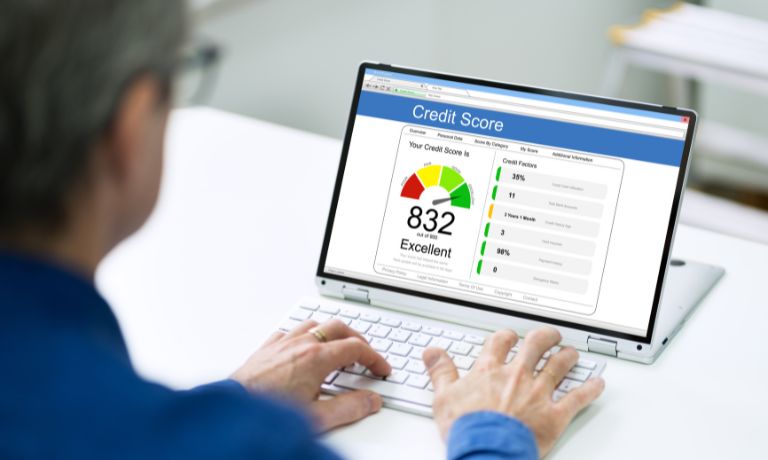Capital One does not perform a credit check before each purchase made with its credit cards. Credit checks are typically conducted during the application process or when you request a credit limit increase. Purchases made with your card are approved based on available credit, account standing, and transaction security protocols, not through ongoing credit checks.
What Is a Credit Check?

A credit check, or inquiry, is a process where a financial institution reviews your credit history to assess your creditworthiness. There are two types of credit checks:
- Hard Inquiries: These are performed when applying for a credit card or loan and can temporarily impact your credit score.
- Soft Inquiries: These occur for purposes like pre-qualification or background checks and do not affect your credit score.
Capital One performs a hard inquiry during your initial application to determine your eligibility for a credit card.
How Does Capital One Use Credit Checks?
Credit checks are primarily used by Capital One to:
- Evaluate your creditworthiness during the card application process.
- Assess your financial history when you request a credit line increase.
- Conduct soft inquiries for pre-qualification offers or account reviews.
These checks are not performed for individual purchases but rather to approve your eligibility and determine credit limits.
Do Credit Card Issuers Perform Credit Checks Before Purchases?
No, credit card issuers, including Capital One, do not conduct credit checks before authorizing every purchase. Instead, purchases are authorized based on:
- Available Credit: The remaining credit limit on your account determines whether a transaction is approved.
- Account Status: Your payment history and account standing are reviewed to ensure the account is active and in good standing.
- Fraud Detection Systems: Algorithms evaluate the transaction for potential fraud or unusual activity, which could result in temporary declines.
These real-time checks focus on account activity rather than your overall credit history.
What Happens During a Capital One Purchase?

When you make a purchase with your Capital One card, the transaction undergoes an authorization process:
- The merchant sends a request to Capital One to approve the transaction.
- Capital One verifies your available credit and account status.
- If the transaction is within your credit limit and there are no security concerns, it is approved.
This process does not involve a credit check but ensures the transaction complies with your account’s terms and conditions.
How Does Capital One Handle Suspicious Transactions?
Capital One employs fraud detection systems to monitor transactions for unusual patterns. If a purchase is flagged as suspicious, the transaction may be temporarily declined, even if you have sufficient credit. In such cases:
- You may receive a notification or text message asking you to confirm the transaction.
- Once verified, the transaction can typically be retried and approved.
Fraud detection helps protect your account from unauthorized activity and ensures safe transactions.
When Does Capital One Perform a Credit Check?
Credit checks are performed in specific scenarios, such as:
- Card Applications: A hard inquiry is conducted when you apply for a Capital One credit card.
- Credit Line Increases: A review of your credit history may occur if you request a higher credit limit.
- Pre-Qualification Offers: Soft inquiries are used to provide personalized offers without impacting your credit score.
These checks are limited to account setup or significant account changes, not for routine purchases.
How Are Purchases Authorized Without a Credit Check?
Capital One uses real-time authorization systems to approve transactions. These systems rely on:
- Your Credit Limit: Ensuring the transaction amount is within your available credit.
- Account Standing: Reviewing recent payments and ensuring there are no past-due balances.
- Merchant Details: Verifying the legitimacy of the merchant and transaction type.
This streamlined process eliminates the need for repeated credit checks and allows for quick purchase approvals.
Can Declined Transactions Affect Credit Reports?
Declined transactions do not appear on your credit report and have no direct impact on your credit score. These declines are typically a result of insufficient credit, suspected fraudulent activity, or technical issues during the transaction process. While a declined transaction itself is not recorded on your credit report, certain account behaviors related to credit management can affect your score.
For example, failing to pay your credit card bill on time can lead to missed payments, which are reported to credit bureaus and significantly lower your credit score. Additionally, consistently using a large portion of your available credit—known as high credit utilization—can also have a negative effect. Both factors are critical indicators of financial responsibility and influence your overall creditworthiness.
Alternatives to Frequent Credit Checks
Capital One relies on other methods to ensure account security and proper usage:
- Transaction Alerts: Cardholders can enable alerts to receive notifications for purchases, adding a layer of security.
- Fraud Monitoring: Algorithms identify suspicious activity without affecting your credit report.
- Credit Limit Reviews: Account activity and payment history are used to determine eligibility for credit line adjustments.
These measures maintain security without the need for ongoing credit checks.
What Should You Do If a Purchase Is Declined?
If your transaction is declined, consider the following steps:
- Check Your Available Credit: Ensure you have enough credit for the transaction.
- Confirm Transaction Details: Verify the merchant information and transaction amount.
- Contact Capital One Support: Reach out to customer service for assistance with resolving declines.
Capital One’s support team can provide clarity and ensure your account is functioning properly.
Conclusion
Capital One does not require a credit check before individual purchases. Instead, transactions are authorized based on available credit, account standing, and security protocols. Credit checks are reserved for specific scenarios like applications or credit line increases. By understanding how Capital One processes transactions and ensures security, cardholders can confidently manage their accounts without worrying about frequent credit checks.
For more information or account-specific inquiries, contact Capital One customer support or visit their official website.
I’ve been into SEO and blogging for over 7 years. I help websites show up higher on search engines. I really enjoy writing helpful guides, especially about gaming and tech stuff.
